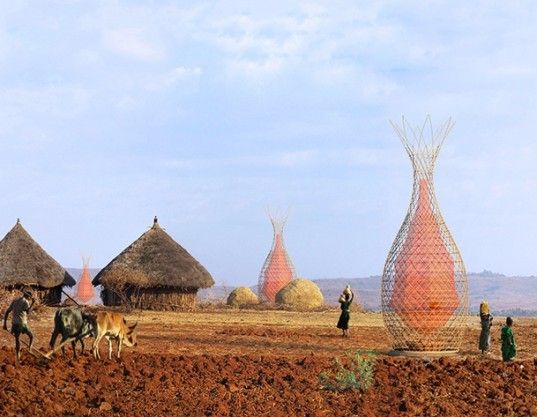Throughout many remote villages in Ethiopia, water gathering is quite an ardous and dangerous task. With the burden typically falling on matriarchs of the family, the trip to the nearest water source can take hours if not all day. More often than not, that water fetched on these long journeys is commonly contaminated with dangerous elements such as human and animal waste. Additionally, many women have little choice but to bring their young children along, which not only puts them in harm’s way, but also keeps them out of school.
Related: Water-Storing Himalaya Towers Take First Place in 2012 eVolo Skyscraper Competition
The WarkaWater Towers were inspired by the local Warka tree, a large fig tree native to Ethiopia that is commonly used as a community gathering space. The large 30 foot, 88 pound structures are made out of juncus stalks or bamboo woven together to form the tower’s vase-like frame. Inside, a plastic mesh material made of nylon and polypropylene fibers act as micro tunnels for daily condensation. As droplets form, they flow along the mesh pattern into the basin at the base of the towers. By harvesting atmospheric water vapor in this way, it’s estimated that at least 25 gallons of potable water can be sustainably and hygienically collected by the towers every day.
